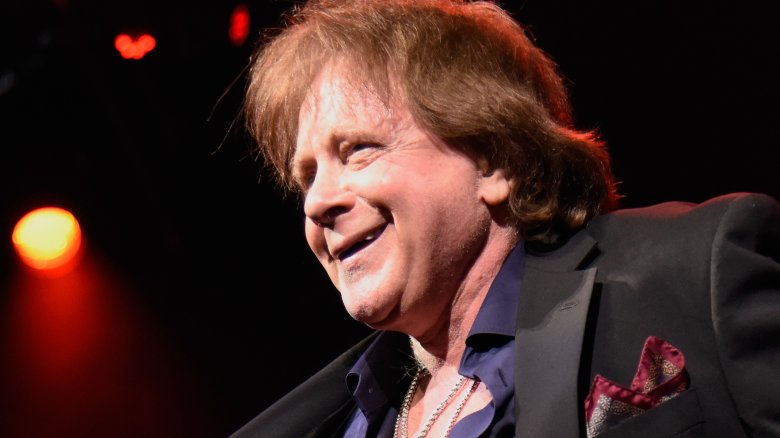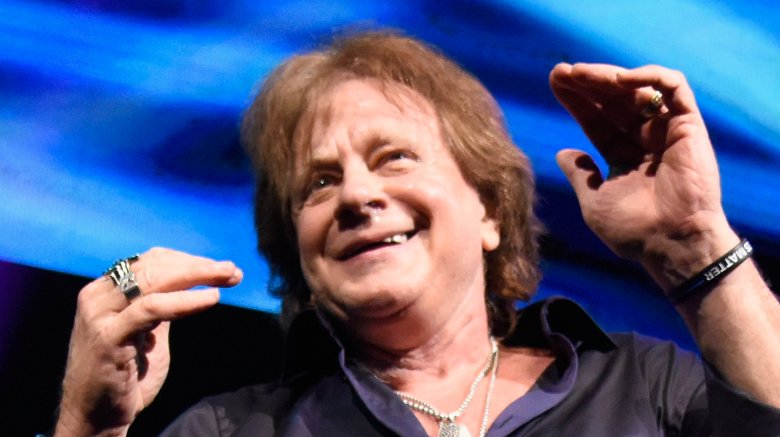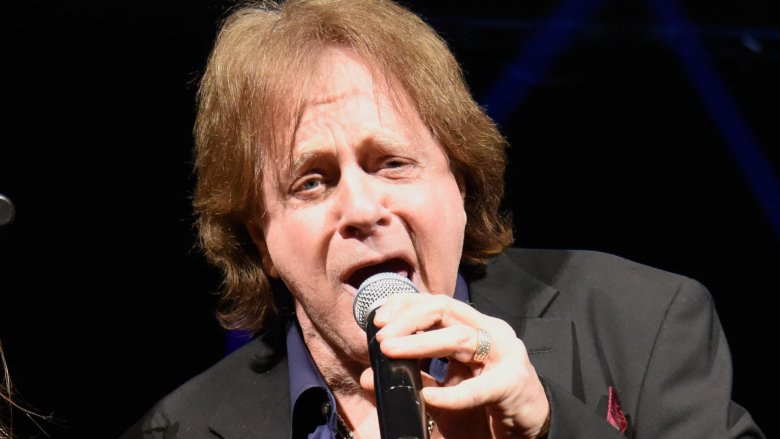How Much Is Eddie Money's Estate Worth?
Best known for his hits "Two Tickets to Paradise" and "Take Me Home Tonight," blue-collar rocker Eddie Money passed away on September 13, 2019, at the age of 70.
"The Money Family regrets to announce that Eddie passed away peacefully early this morning," his family said in a statement (via Variety). "It is with heavy hearts that we say goodbye to our loving husband and father. We cannot imagine our world without him. We are grateful that he will live on forever through his music."
A longtime cigarette smoker, Money revealed on his Real Money reality TV show that he had been diagnosed with stage 4 esophageal cancer early in 2019. "I thought I was just going in to get a checkup, and he told me I got cancer," he said. "Am I gonna live a long time? Who knows, it's in God's hands," he continued. "But you know what? I'll take every day I can get. Every day above ground is a good day." However, TMZ reports that Money died of complications from a heart valve procedure he underwent a few months ago, including a bout of pneumonia.
How Eddie Money became a rock star
Born Edward Joseph Mahoney, Eddie Money's path to rock stardom was a strange one. At age 16 he was thrown out of high school for forging his report card, so he joined a local band, noting it was the "best way to get to go out with cheerleaders without being on the football team."
The son of an NYPD police officer, the "Walk On Water" singer initially wanted to stay in the family business and actually served on the force for two years before quitting and pursuing his rock and roll dreams (via NBC News). "I would have been a very lenient cop," he told Rolling Stone in 2018. After all, why issue tickets for a pair of bum headlights when you could be giving the world "Two Tickets to Paradise?"
Soon after, Money would move to Los Angeles to pursue a music career and "grow out his hair," according to the Washington Post. He would take voice lessons with Judy Davis, vocal coach to stars like Frank Sinatra and Barbra Streisand, while supporting himself by selling bellbottom blue jeans. Within a few years he had signed to Columbia Records and released his first hit record. Overnight, his stage name turned from self-deprecating humor to reality, forcing Money to cope with the pressures of stardom.
The cop-turned-rocker struggled with drug addiction during his career, and in the early '80s, his life almost ended. According to People, Money overdosed on fentanyl in 1981, which led to him badly damaging his sciatic nerve. "It was very scary," Money told the publication in 1996. "I was in physical therapy for more than a year." His 1982 album, No Control, was written about the experience, which left him with a permanent limp.
Though Money would continue to struggle with addiction throughout his career, CNN reported he was "clean and sober" by 2003, after making a promise to his family that he would clean up his act. "I came to the realization that I really didn't need [it] for my quick wit," he would say. Clearly, he was right.
How much Eddie Money's estate might be worth
Over the course of his rock career, Money scored 11 Top 30 hits on Billboard's Hot 100 and earned a Grammy nomination for his hit "Take Me Home Tonight."
According to Celebrity Net Worth, Money may have been worth about $20 million at the time of his death, with more conservative estimates around $12 million. He is survived by his wife and five children, but the directives of his will are not yet clear. As a resident of California since 1968, Money's family won't be subject to a state inheritance or estate tax since the state has neither. However, depending on what form his fortune takes (cash, property, his music catalog, etc.) and how much his estate is valued at, Eddie Money's estate could be on the hook for several million dollars in federal estate taxes. TMZ reports that Money sold 28 million albums during his four decade career, but it's unclear who owns the rights to the legendary rocker's catalog.
Although Money's success peaked in the mid-'80s, he maintained a rabid fan base and made several concert appearances each year in the decade before his death, often averaging around 175 shows per year for his fans, which he called "friends."


